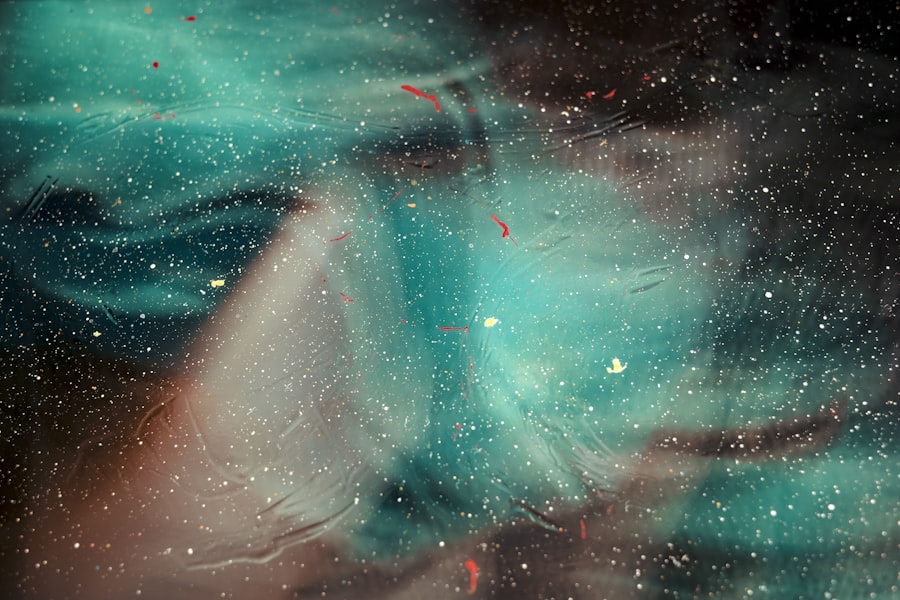The concept of the afterlife has captivated human imagination for centuries, serving as a source of comfort, fear, and curiosity. You may find yourself pondering what happens after death, a question that transcends cultures and epochs. The afterlife is often depicted as a realm where souls reside post-mortem, a place of reward or punishment, or even a cycle of rebirth.
This exploration of the afterlife is not merely an academic pursuit; it touches on the very essence of existence and what it means to be human. As you delve into this topic, you will encounter a myriad of beliefs, experiences, and scientific inquiries that seek to unravel the mysteries surrounding life after death. In your quest for understanding, you may discover that the afterlife is not a singular concept but rather a tapestry woven from diverse threads of cultural, religious, and philosophical perspectives.
Each belief system offers its own interpretation of what lies beyond the veil of mortality. Whether you lean towards spiritual interpretations or scientific explanations, the afterlife remains a profound enigma that invites you to reflect on your own beliefs and experiences. As you navigate through this exploration, you will uncover insights that challenge your perceptions and perhaps even reshape your understanding of life itself.
Key Takeaways
- The afterlife is explored through various lenses including neuroscience, culture, and religion.
- Brain activity and consciousness play crucial roles in shaping near-death experiences and perceptions of the afterlife.
- Memories and emotions significantly influence how individuals might experience or interpret the afterlife.
- Different cultures and religions offer diverse beliefs about what happens after death, reflecting varied understandings of personal identity and time.
- Scientific theories continue to investigate the afterlife, aiming to bridge gaps between subjective experiences and objective brain functions.
The Brain and Consciousness
To comprehend the afterlife, it is essential to first understand the relationship between the brain and consciousness. You might wonder how consciousness arises from the physical structure of the brain and whether it persists beyond death. Neuroscience has made significant strides in unraveling the complexities of the human mind, yet many questions remain unanswered.
The brain is an intricate organ responsible for our thoughts, emotions, and perceptions, but what happens to consciousness when the brain ceases to function? This question lies at the heart of discussions about the afterlife. As you explore this relationship further, you may encounter theories suggesting that consciousness is not merely a byproduct of brain activity but rather an independent entity that can exist apart from the physical body.
This notion challenges conventional scientific views and opens up possibilities for understanding how consciousness might continue after death. You may find yourself contemplating whether consciousness is a fundamental aspect of reality, one that transcends the limitations of our biological existence. This exploration invites you to consider the implications of consciousness on your beliefs about life after death.
Near-Death Experiences

Near-death experiences (NDEs) have become a focal point in discussions about the afterlife, providing intriguing accounts from individuals who have brushed against death. You may have heard stories of people who report vivid experiences during moments of clinical death—experiences that often include feelings of peace, encounters with deceased loved ones, or journeys through tunnels toward bright lights. These accounts can be both compelling and perplexing, prompting you to question the nature of reality and consciousness.
As you delve into the research surrounding NDEs, you will find that many scientists and psychologists have attempted to explain these phenomena through various lenses. Some attribute NDEs to physiological responses in the brain during traumatic events, while others argue that they offer glimpses into an existence beyond our physical realm. Regardless of the explanation, these experiences resonate deeply with those who undergo them, often leading to profound changes in their perspectives on life and death.
You may find yourself reflecting on how these experiences shape not only individual beliefs but also collective understandings of what lies beyond.
Cultural and Religious Beliefs about the Afterlife
| Culture/Religion | Belief about Afterlife | Key Concepts | Afterlife Destination | Rituals or Practices |
|---|---|---|---|---|
| Christianity | Heaven and Hell | Judgment, Resurrection, Salvation | Heaven (eternal life) or Hell (eternal punishment) | Funeral rites, prayers for the dead, last rites |
| Islam | Paradise and Hellfire | Day of Judgment, Resurrection, Accountability | Jannah (Paradise) or Jahannam (Hell) | Funeral prayers (Salat al-Janazah), burial facing Mecca |
| Hinduism | Reincarnation and Moksha | Karma, Samsara (cycle of rebirth), Liberation | Cycle of rebirth until Moksha (liberation) | Ritual cremation, offerings, prayers |
| Buddhism | Rebirth and Nirvana | Karma, Samsara, Enlightenment | Cycle of rebirth until Nirvana (cessation of suffering) | Funeral rites, chanting, meditation |
| Ancient Egyptian | Afterlife in the Field of Reeds | Judgment by Osiris, Preservation of the body | Field of Reeds (idealized afterlife) | Mummification, tomb offerings, spells |
| Judaism | Varied beliefs: Olam Ha-Ba (World to Come) | Resurrection, Judgment, Immortality of the soul | Olam Ha-Ba or Gan Eden (Paradise) | Funeral prayers, mourning rituals (Shiva) |
| Native American | Spirit world and reincarnation | Connection to ancestors, nature spirits | Spirit world or return to Earth | Funeral ceremonies, offerings, storytelling |
Cultural and religious beliefs play a significant role in shaping perceptions of the afterlife.
In many cultures, the afterlife is viewed as a continuation of existence in another form—be it heaven, hell, reincarnation, or spiritual realms.
Each belief system offers unique narratives that provide comfort and guidance to adherents as they navigate life’s uncertainties. You may find it fascinating how these beliefs influence moral frameworks and societal norms. For instance, in some religions, the promise of an afterlife serves as motivation for ethical behavior during one’s lifetime.
Conversely, other traditions emphasize living in harmony with nature or achieving enlightenment as pathways to transcendence. As you engage with these diverse perspectives, you will gain insight into how cultural narratives shape individual experiences and collective identities surrounding death and what follows.
Scientific Theories about the Afterlife
While cultural and religious beliefs offer rich narratives about the afterlife, scientific theories provide a different lens through which to examine this phenomenon. You may be intrigued by how scientists approach questions about life after death through empirical research and theoretical frameworks. Some researchers investigate consciousness as a product of brain activity, while others explore quantum theories that suggest consciousness could exist independently of the physical body.
As you navigate through scientific inquiries into the afterlife, you will encounter debates surrounding topics such as consciousness, energy transfer, and even multiverse theories. These discussions challenge traditional notions of life and death, inviting you to consider whether there are aspects of existence that remain beyond current scientific understanding. Engaging with these theories can deepen your appreciation for the complexities of life and encourage you to remain open-minded about what lies beyond our tangible reality.
The Impact of Brain Activity on the Afterlife

The relationship between brain activity and perceptions of the afterlife is a fascinating area of study that invites you to consider how neurological processes shape our understanding of existence beyond death. Research has shown that certain brain states can induce profound experiences that individuals interpret as spiritual or transcendent. For instance, during moments of intense meditation or near-death experiences, specific brain regions may become activated in ways that alter perception and consciousness.
As you explore this connection further, you may ponder whether these altered states provide genuine glimpses into an afterlife or if they are merely products of brain chemistry responding to extreme conditions. This inquiry raises questions about the nature of reality itself—whether what we perceive is a reflection of an objective truth or a subjective experience shaped by our biological makeup. Engaging with these ideas can lead you to contemplate how brain activity influences not only your understanding of life but also your beliefs about what comes next.
The Role of Memories and Emotions in the Afterlife
Memories and emotions play a crucial role in shaping your understanding of both life and the afterlife. As you reflect on your own experiences, you may recognize how memories serve as anchors to your identity and sense of self. When considering the afterlife, one might wonder how memories persist beyond physical existence and whether emotions carry over into whatever lies beyond.
You may find it compelling to explore how different cultures view memories in relation to the afterlife. In some traditions, it is believed that loved ones continue to watch over those still living, creating a bond that transcends death. This perspective can provide comfort during times of grief and loss, reinforcing connections that endure despite physical separation.
As you engage with these ideas, you will likely come to appreciate how memories and emotions shape not only individual experiences but also collective narratives about life after death.
The Afterlife and Perception of Time
The perception of time is another intriguing aspect when contemplating the afterlife. You might wonder how time operates in an existence beyond our earthly experience—does it flow linearly as we perceive it in life, or does it take on a different dimension altogether? Many accounts from near-death experiences suggest that individuals encounter timelessness during their journeys, where past, present, and future converge into a singular moment.
As you explore this concept further, consider how different cultures interpret time in relation to the afterlife. Some belief systems propose cyclical views of time where souls are reborn into new lives based on past actions, while others envision linear paths leading toward eternal destinations such as heaven or hell. Engaging with these diverse perspectives can deepen your understanding of how time influences not only our earthly existence but also our beliefs about what lies beyond.
The Afterlife and Personal Identity
Personal identity is intricately linked to discussions about the afterlife. You may find yourself questioning what constitutes your identity—are you merely a collection of memories and experiences tied to your physical body? Or is there an essence within you that transcends mortality?
These inquiries invite profound reflections on who you are at your core and how that identity might persist beyond death. As you navigate through various philosophical perspectives on personal identity in relation to the afterlife, consider how different belief systems address this question. Some traditions emphasize continuity of self through reincarnation or spiritual evolution, while others propose that personal identity dissolves into a greater universal consciousness upon death.
Engaging with these ideas can lead you to contemplate not only your own identity but also your connection to others and the universe as a whole.
The Afterlife and Consciousness
The relationship between consciousness and the afterlife remains one of humanity’s most profound mysteries. You may find yourself grappling with questions about whether consciousness survives physical death or if it is irrevocably tied to the functioning brain.
As you delve deeper into this topic, consider how different philosophical perspectives approach consciousness in relation to existence beyond death. Some argue for dualism—the idea that mind and body are separate entities—while others advocate for materialism, positing that consciousness arises solely from physical processes within the brain. Engaging with these contrasting viewpoints can enrich your understanding of consciousness itself and its potential implications for what lies beyond our earthly experience.
Exploring the Mysteries of the Afterlife
In conclusion, your exploration of the afterlife reveals a complex interplay between cultural beliefs, scientific theories, personal experiences, and philosophical inquiries. As you reflect on these diverse perspectives, you may find yourself drawn into deeper questions about existence itself—what it means to live, die, and perhaps continue beyond this life. The mysteries surrounding the afterlife invite you to engage with your own beliefs while remaining open to new ideas that challenge your understanding.
Ultimately, contemplating the afterlife encourages introspection about your values, relationships, and purpose in life. Whether through spiritual practices or scientific inquiry, this journey can lead to profound insights that shape not only your beliefs about what comes next but also how you choose to live in the present moment. As you navigate this intricate landscape of thought and experience, remember that exploring these mysteries is not just an intellectual pursuit; it is an invitation to connect more deeply with yourself and those around you as you ponder life’s greatest questions.
When contemplating the mysteries of what happens to your mind when you die, it’s intriguing to explore various perspectives and scientific insights. A related article that delves into the complexities of consciousness and the afterlife can be found on Freaky Science. This resource offers a blend of scientific inquiry and philosophical reflection, making it a thought-provoking read. You can check it out here: Freaky Science.
WATCH THIS! Your Brain Is Not Real (The Receiver Theory)
FAQs
What happens to the brain immediately after death?
After death, the brain stops receiving oxygen and nutrients due to the cessation of blood flow. This leads to the rapid loss of electrical activity and the breakdown of brain cells.
Does consciousness continue after death?
Scientifically, consciousness is understood to be a product of brain activity. When the brain ceases to function, consciousness as we know it also ends. There is no empirical evidence supporting continued consciousness after death.
Can the mind experience anything during the dying process?
Some studies suggest that during the dying process, individuals may experience phenomena such as near-death experiences (NDEs), which can include sensations of peace, seeing lights, or out-of-body experiences. However, these are thought to be brain-based events occurring under extreme physiological stress.
Is there any scientific evidence of the mind existing separately from the brain?
Currently, there is no scientific evidence that the mind exists independently of the brain. All known mental processes are linked to brain activity.
What happens to memories and personality after death?
Memories and personality are stored and expressed through brain structures and neural connections. After death, these physical substrates degrade, leading to the loss of memories and personality.
Are there any changes in brain activity at the moment of death?
Research has shown that some brain activity may briefly increase or change patterns during the moments surrounding death, but this activity rapidly declines as the brain shuts down.
How do different cultures view the mind after death?
Cultural and religious beliefs vary widely regarding the fate of the mind or soul after death, ranging from concepts of an afterlife, reincarnation, or spiritual continuation, to the belief that consciousness ends entirely. These views are based on faith and tradition rather than scientific evidence.
Can brain function be restored after clinical death?
In some cases, if clinical death is brief and prompt medical intervention occurs, brain function can be restored. However, prolonged lack of oxygen leads to irreversible brain damage and permanent loss of mind function.
